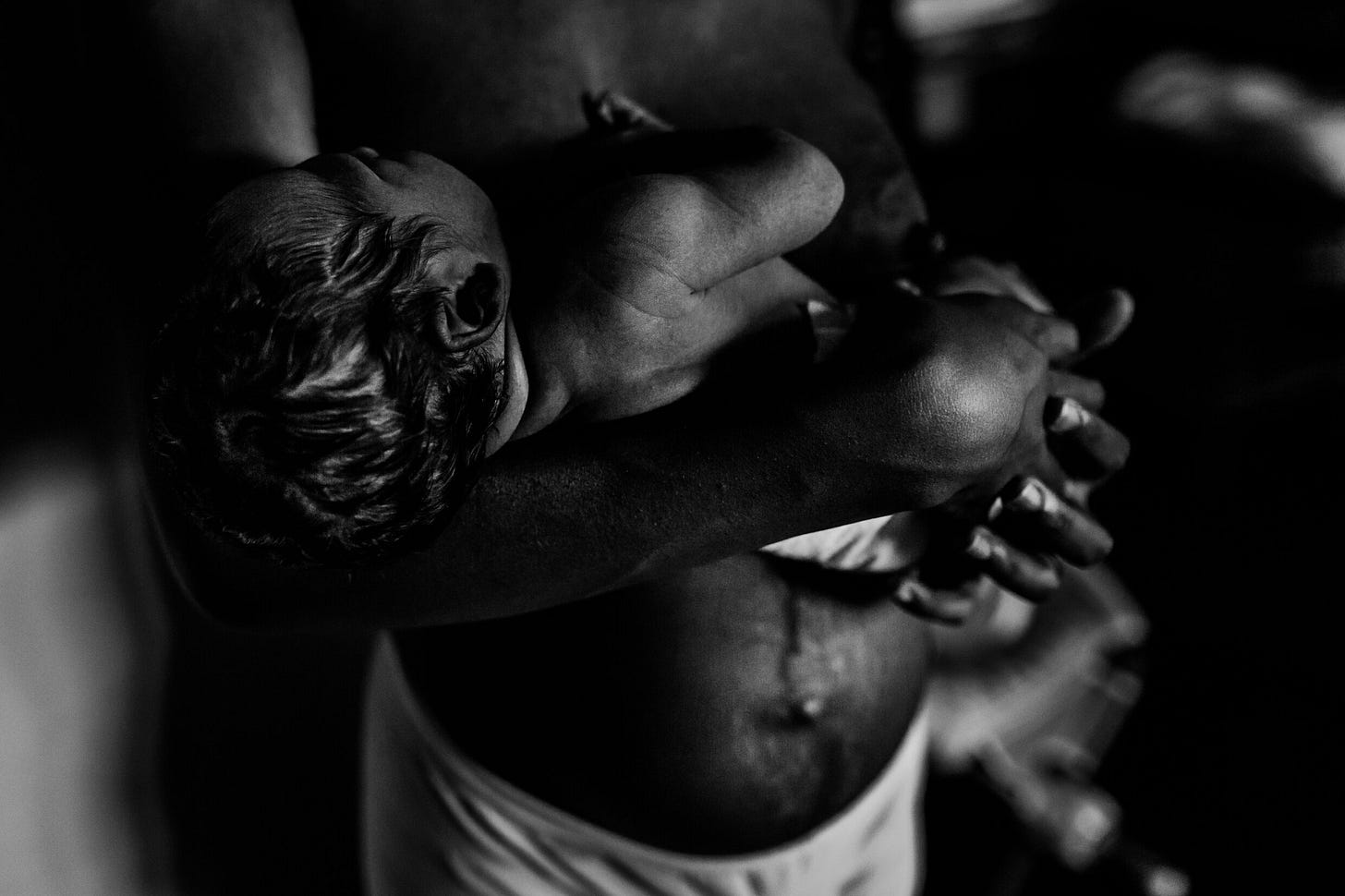Am I Your Mother? - Part 1
Maternal Disillusionment and the Body’s Narrative

By Lara Ryd
In 2020, SXSW premiered a surrealist short film entitled “Blocks,” the premise of which caught my eye: “an existential comedy about the mother of two young children who begins to spontaneously vomit toy blocks.” Both amused and skeptical, my husband and I decided to watch it, since this was the first and only time SXSW would be streaming their lineup as a result of the festival’s COVID-19 cancellation.
“Blocks” takes itself too seriously to rightfully be considered a comedy. Written and directed by Bridget Moloney, the film portrays a 30-something woman who is deluged with her unfulfilling work as a stay-at-home mom. The “existential” part, I suppose, is found in the idea that her children have overrun her life in such an intimate way that her body is now backfiring by regurgitating their Legos at inopportune moments. The film ends with her husband and children waking up one morning to find her encased in a little Lego structure that she has built around herself. It’s for mommy only, she informs her family. They shrug and toddle off to find some breakfast.
Despite its surrealist twist, the plot of “Blocks” follows convention. The protagonist is an established character type who has just recently become fashionable again: the modern mom, unsatisfied, exhausted, and bored, her personal identity lost to motherhood, her dreams and ambitions unfulfilled. She’s the protagonist of Flaubert’s Madame Bovary, Tolstoy’s Anna Karenina, Chopin’s Awakening, and the list goes on. There is nothing new under the sun.
Yet with the rise of Facebook, Instagram, TikTok, et al, this type received a makeover. Recoiling from the pressure from social media to “have it all together,” many women have become more open about the ways in which motherhood has disappointed them. A brief search for mom-related hashtags and social media accounts will lead you to groups of women who not only believe, but openly declare, that motherhood, in all its promises of personal fulfillment and gratification, has failed them. Motherhood has meant the loss of their hobbies, their sense of accomplishment, their friendships, their freedom, their intellectual pursuits, their IQ, even their marriages—without any tangible gains to speak of. As one contemporary German novelist put it in her book Die Mutterglück-Lüge (The Myth of Mothering Joy), “The reality of motherhood is incontinence, boredom, weight gain, saggy breasts, depression, the end of romance, lack of sleep, dumbing down, career downturn, loss of sex drive, poverty, exhaustion and lack of fulfillment.” With these kinds of scathing evaluations of motherhood becoming increasingly common in public discourse, it shouldn’t surprise us that birthrates throughout the United States have fallen over the last decade and that abortion is being pushed as a human right.
What is most striking about these confessions of maternal disillusionment is how often they mention the body. In the excerpt quoted above, more than half of the effects listed concern the physical changes women experience after having children. The message is clear: motherhood means the loss of your body as you once knew it. It’s no secret that the female body undergoes a great deal of changes postpartum. Throughout pregnancy, the body reorients itself towards the service of another human being. Everything from hormone balance to bone structure to pelvic floor strength to, yes, the shape of a woman’s breasts changes in order to accommodate another human body. No matter how hard she tries to “get her body back,” the fact is that pregnancy, birth, and nursing usually have permanent effects on the contours of her body. Motherhood transforms the body in a way that no other human relationship does.
This is one thing that “Blocks” tries to capture with its surrealist storyline. The protagonist’s life is made unintelligible to her because of a bizarre new development in her body. Moloney takes the common new-mom complaint that “my body doesn’t look, feel, or function the way that it used to” and turns it into an image of absurdity. The incoherency of the maternal body is the point of the film; in the end, it is what isolates her from her family.
The fact that the body is such a central focus of these critiques of motherhood reveals an essential truth about the body: that it is inextricably linked to personal identity. The body is one of the most fundamental ways by which we understand who we are. Our bodies provide the means by which we interact with the world and make sense of our life’s narrative. In order to begin answering the question “Who am I?” we start by looking to our bodies—our sex, genealogy, location in time and space—for categories by which we can communicate ourselves to others.
But if this is the case, how then do we make sense of our life’s narrative when our bodies change so dramatically over the course of our lives?
Lara Ryd is a co-founder of Perishable Goods. She lives in Michigan with her husband and son.


